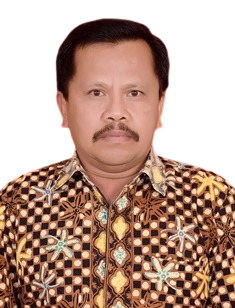Opportunities and challenges halal marketplace in Indonesia
Downloads
Andreas, et al. 2019. Islamic Perspective In Consumers Protecting Of E-commerce Transactions In Indonesia. IKONOMIKA: Jurnal Ekonomi dan Bisnis Islam. 4(1): 60-70
APJII (Asosiasi Penyelenggara Jasa Internet Indonesia). 2018. Penetrasi & Profil Perilaku Pengguna Internet Indonesia 2018. Diakses Oktober 2020 pada https://apjii.or.id/survei
Bank Indonesia. 2020. BI Rilis Indeks Literasi untuk Akselerasi Ekonomi Syariah. Departemen Ekonomi dan Keuangan Syariah.
Bilgin, E.I & Nakata, C.C. 2016. A New Look at Faith-Based Marketing: The Global Halal Market. Business Horizons 59, 285-292
BPS. 2019. Statistik E-commerce 2019. No Publikasi: 06320.1902.
Firdaus, M.R. 2018. E-Money dalam Perspektif Hukum Ekonomi Syariah. Jurnal Tahkim. 12 (1) :145-156
Global Religious Futures. 2020. Islamic Information and Data. Diakses Oktober 2020 pada http://www.globalreligiousfutures.org/
Jusop, Mariana. et al. 2018. Understanding Halal E-commerce Practice: A Proposed Conceptual Framework. Global Business and Management Research: An International Journal. 10 (3): 908-919
KNKS. 2019. Insight: Optimalisasi Inklusi Keuangan Dengan Teknologi Financial Syariah. Buletin Ekonomi Syariah edisi Oktober.
KNKS. 2019. Masterplan Ekonomi Syariah Indonesia 2019-2024. Jakarta: Kementerian Perencanaan Pembangunan Nasional
Kominfo. 2018. UMKM Go Online. Direktorat Jenderal Aplikasi Informatika Kementerian Komunikasi dan Informatika.
Mangeswuri, D.R. et al. 2018. Industri Kreatif, Fintech dan UMKM Dalam Era Digital. Jakarta: Pusat Penelitian Badan Keahlian DPR RI.
Salim, Munir. 2017. Jual Beli secara Online Menurut Pandangan Hukum Islam. Jurnal Ad-Daulah. 6 (2) : 371-368
Satriana, E.D & Faridah, H.D. 2018. Wisata Halal: Perkembangan, Peluang, dan Tantangan. Journal of Halal Product and Research (JHPR). 01 (02): 32-43
Shobirin. 2015. Jual Beli dalam pandangan islam. Jurnal Bisnis dan Manajemen Islam. 3(2): 239-261
Siswadi. 2013. Jual Beli dalam Perspektif Islam. Jurnal Ummul Quro. 3 (2) : 59-65.
Startupranking.com. 2019. Top-Worldwide. Diakses Oktober 2020 pada https://www.startupranking.com/top
Syafe'i, Rahmat. 2001. Fiqih Muamalah. Bandung : CV Pustaka Setia. 280 hlm
Talib, A.N.A. & Razak, I.S.A. 2012. Cultivating Export Market Oriented Behavior in Halal Marketing. Journal of Islamic Marketing. 4 (2): 187-197
Thalib, EF dan Meinarni, Ni Putu S. 2019. Tinjauan Yuridis Mengenai Marketplace berdasarkan Peraturan Perundang- Undangan di Indonesia. Jurnal Kajian Hukum dan Keadilan 7 (2) : 194-205
Thomson Reuters. 2019. State of Global Islamic Economy Reports 2018/19.
Authors who publish with Journal of halal product and research (JPHR) agree to the following terms:
- The journal allows the author(s) to hold the copyright of the article without restrictions.
- The journal allows the author(s) to retain publishing rights without restrictions.
- The legal formal aspect of journal publication accessibility refers to Creative Commons Attribution (CC BY) 4.0 International License










